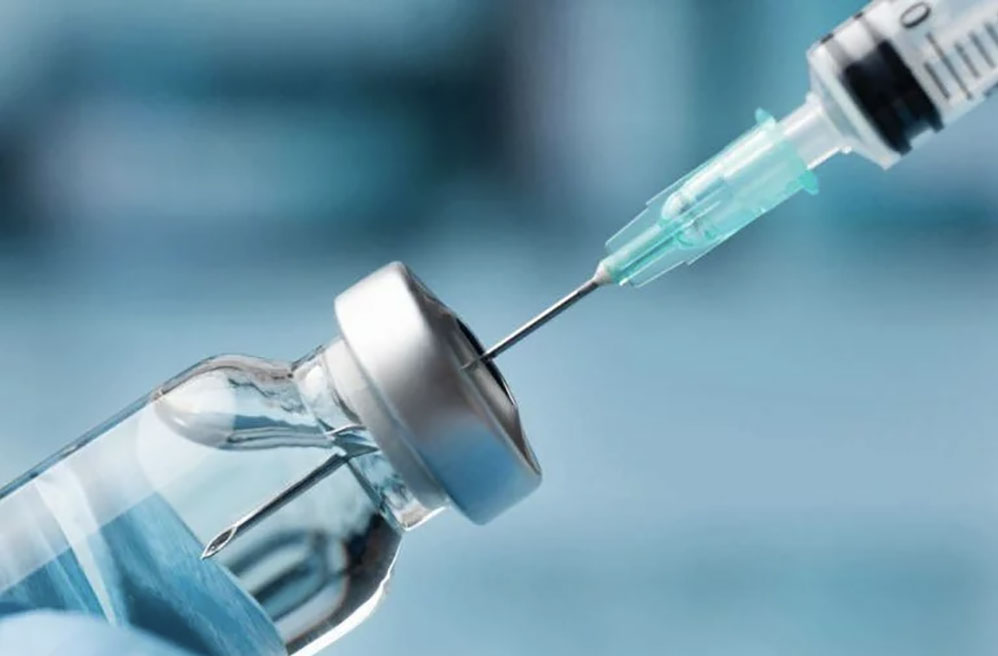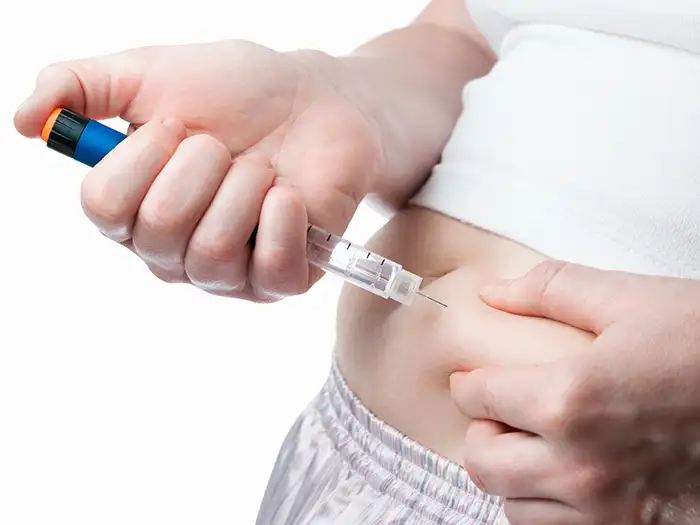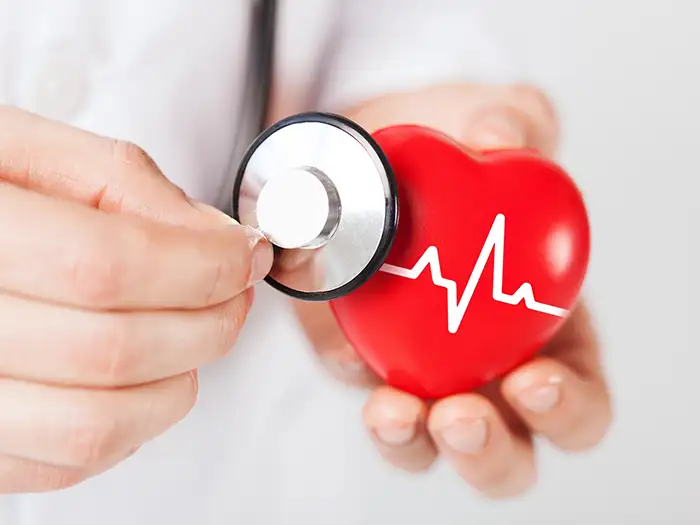Menopause is a natural process that happens when women’s menstrual cycles end. This normal part of aging typically occurs around age 51. While some women don’t experience any symptoms when they reach menopause, others find themselves dealing with various forms of physical discomfort and emotional upheaval on a daily basis. Menopausal symptoms cover a wide range and affect every area of your life. Keep reading to learn more about the symptoms of menopause and what you can do to treat them.
What Is Menopause?
Menopause occurs when the ovaries age and the body lowers its production of several reproductive hormones, including estrogen, progesterone, testosterone, and follicle-stimulating hormones. This process usually begins in the late 40s and stretches on over several years. During the first stage, known as perimenopause, the ovaries slow their production of estrogen. When you arrive at menopause itself, your body stops producing eggs and your menstrual periods stop. After a year with no periods, you’re considered post-menopausal.
The symptoms of menopause often begin during perimenopause, and many of them are spread out across several years. During this time, your body starts to use energy differently, which can have an effect on your weight and body shape. Menopause can also affect bone and heart health, resulting in different symptoms for some women. Menopause can cause a wide range of symptoms, and not all women experience the same ones.
The Symptoms of Menopause
As you approach menopause, your body may feel different in several ways. You could find yourself gaining weight, seemingly for no reason. Your skin may become drier. You might experience headaches, joint pain, or difficulty falling asleep. Mental health symptoms show up with menopause as well, so you could experience memory problems or mood swings. Among the most common symptoms of menopause are the following:
Physical Symptoms
Physical symptoms associated with menopause can affect almost every part of your body, including areas you may not even know about. Menopause also affects many women’s sexual health in some significant ways. Take a look at some of the most common physical symptoms.
Vaginal Dryness
The loss of estrogen that occurs during perimenopause and menopause results in a decrease in blood flow to the vagina, which makes it drier, which can bring about discomfort and pain during intercourse. Lubrication becomes mandatory during sex, but sometimes it’s still not enough without other systemic treatment, such as hormone replacement therapy. You may also find that your sex drive diminishes (and we’ll talk about that more below).
Osteoporosis
Maybe we shouldn’t even call this a “symptom,” since it happens invisibly and you may not sense that it’s occurring — but it’s important, and something you should know is happening. Your bones need estrogen to stay strong. As you lose estrogen, you gradually lose an average of 25% of your bone mass. You may not notice that your bones are becoming weak until they fracture for no obvious reason. Your doctor may want to run tests on your bone density. You can push back against the danger of osteoporosis through taking calcium and vitamin D supplements and through adding estrogen back into your system with hormone replacement therapy.
Weight Gain
The loss of hormones also affects your body’s composition. Most women find that they lose muscle mass at menopause, in part because their body’s production of testosterone is decreasing. You may also notice that not only are you gaining weight, but you’re gaining it in different places than you used to, with more fat clinging to your waist.
Cardiovascular Disease
This is another symptom or result of menopause that’s not always self-evident at first. Women’s risk of coronary artery disease increases after menopause because estrogen is vital to keeping arteries healthy. Along with the increased blood pressure, higher risk of diabetes, and weight gain that occurs around menopause, this can result in narrowed arteries and a buildup of plaque, which can lead to a heart attack or stroke later in life.
Urinary Urgency
Many women start to experience issues with bladder control during the menopause years. This can happen in part because of muscle weakness in your pelvic floor, but also due to the loss of estrogen, which plays a role in keeping your bladder and urethra healthy. Many women also find themselves more prone to bladder infections during perimenopause and menopause.
Hot Flashes and Night Sweats
As many as 75% of menopausal women experience hot flashes, which are feelings of heat that sweep across your upper body. You may experience red blotches on your face or chest, often accompanied by sweating. Hot flashes can last a few seconds, or they can continue for several minutes. Some women only get them every few days, while others experience several hot flashes within the course of an hour. This common symptom is discomforting and often debilitating.
While hot flashes are triggered by anything from caffeine or spicy food to hot weather and stress, they always have the variations in estrogen levels that occur during menopause. For many women, hot flashes are immediately followed by the chills, as your body tries to get its internal temperature regulated.
When hot flashes occur during sleep, they’re known as night sweats. Many women wake up abruptly due to night sweats, finding themselves overwhelmingly hot even though their bedroom is quite cool. Some women continue to experience hot flashes long after they’ve ceased having their periods. The primary treatment for this uncomfortable symptom of menopause is regulation of estrogen levels through hormone replacement therapy.
Irregular Periods
Your periods are likely to become irregular before they stop altogether. In fact, skipping some periods is one of the key signs that lets you know you’re in perimenopause (but you can still get pregnant, so take a pregnancy test if you’re not sure of the reason). Sometimes your cycle will get shorter, or your periods are lighter or heavier. Since irregular periods are signs of some serious conditions, you should see a doctor if you spot during the month, your periods are very close together, bleeding is heavy, or bleeding lasts more than a week.
Changes in Hair Growth
During menopause, weird things can happen to your hair and skin. Both are likely to get drier, and your hair may become thinner, not just on your head but all over your body — with one exception. You may find facial hair sprouting, as a result of the balance between estrogen and testosterone in your body getting out of whack. Seeking a hormonal balance can help resolve this problem — and waxing also works.
Mental Health Symptoms
The changes in your hormones affect your mental , as well as physical health. Check out these common mental and emotional symptoms of menopause.
Insomnia
Hot flashes and night sweats are a key factor in the insomnia that many women experience during menopause, but they’re not the only ones. You may have trouble falling or staying asleep during these years even if you’re not experiencing night sweats. Practicing good sleep hygiene and keeping your bedroom cool and well-ventilated can help make a difference.
Mood Swings
The shifting hormone levels in your body can provoke emotional swings during perimenopause and menopause. You may find your emotions swinging wildly from one extreme to another, seemingly uncontrollable. If you’ve already experienced depression or anxiety, those symptoms may get worse. You may find yourself extra irritable even with no provocation, or you might end up getting more aggressive than you intended.
Loss of Libido
Your sex drive may change drastically during menopause. Many women find themselves less interested in sex — and the vaginal dryness that can make sex painful doesn’t help. The change in your libido is a result of the decreased estrogen in your body, which can make it more difficult to become aroused sexually. While some women do enjoy the freedom that comes with not having to worry about getting pregnant, many women must seek medical help to continue to enjoy sex after menopause.
Difficulty With Memory and Concentration
Have you found your attention drifting off for no reason? It’s possibly caused by menopause. While not every woman experiences this symptom, for those who do, it can be very upsetting. Hand in hand with this symptom comes issues with memory, including not being able to find the right word. If you’re prone to depression and anxiety, these symptoms are especially pronounced.
Treatment Options for Menopause Symptoms
Because loss of estrogen is at the root of all menopause symptoms, it only makes sense that replacing the lost estrogen will have a positive effect on the symptoms you’re experiencing. That’s what hormone replacement therapy does. It provides your body with the estrogen and (for most women) progesterone that your system needs to beat back those uncomfortable symptoms.
Hormone replacement therapy is extremely effective against most of the key symptoms of menopause, including hot flashes, night sweats, mood swings, vaginal dryness, and hair loss. It also works to keep your body healthy against the more stealthy symptoms of osteoporosis and cardiovascular problems.
If your symptoms are affecting your quality of life, you should talk to a knowledgeable doctor about whether hormone replacement therapy is right for you. At Hormonally Balanced, we draw on a wealth of experience and training to help each woman find the right treatment for their hormonally-related symptoms. Contact us today to see how we can help you conquer the symptoms of menopause.






